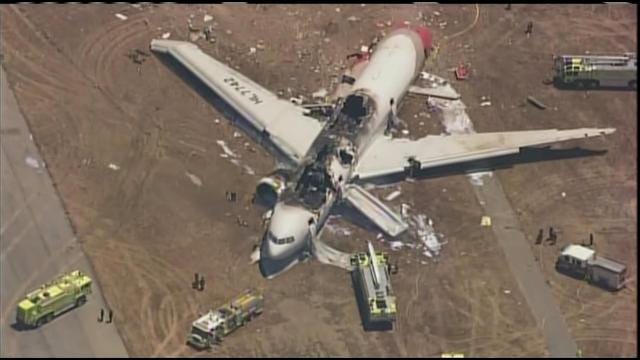Oklahoma Pilot Shares Insight On Deadly San Francisco Plane Crash
Investigators are trying to figure out why an Asiana airliner was flying too low and slowly when it crash-landed in San Francisco last weekend, killing two teens.Tuesday, July 9th 2013, 9:46 pm
Investigators are trying to figure out why an Asiana airliner was flying too low and slowly when it crash-landed in San Francisco last weekend, killing two teens.
They're also looking into why the pilots on board didn't realize the danger in time.
We talked with a commercial pilot from Green Country who's flown into that same airport. Craig Allen said the runway at San Francisco International is no more difficult to navigate than any other runway.
Investigators say the plane was flying about 40 miles an hour slower than normal. Seconds before impact, a member of the flight crew called for increased speed, but by that time it was too late.
7/6/2013 Related Story: 2 Dead In Boeing 777 Crash At San Francisco Airport
"You always, always plan on something going wrong," Allen said.
He knows all about planning for big flights. He's been in the aviation business for 35 years, working as a commercial pilot for most of that time.
And even with more than three decades of experience under his belt, it's still difficult for Allen to see a plane he's so familiar with crash.
"I was a little bit bewildered. On a pretty, sunshiny day, just like today, only probably not as warm, something must have gone terribly, terribly wrong," Allen said.
One factor may be the inexperience of the pilot landing the plane. The NTSB says the pilot was only halfway through his training on the 777, but had nearly 10,000 hours flying other planes, including 747s.
"It's basically the same size, weight, only a 747 holds a lot more people," Allen said. "This guy had thousands and thousands and thousands and thousands of hours of very sophisticated equipment prior to this, so that part has nothing to do with it, whatsoever."
The jet's data recorder shows the auto pilot feature was turned off at 16,000 feet.
And in the brief moments before impact, the jet's speed dropped well below safe, target levels, causing the landing gear to hit the seawall and fall off at the end of the runway.
"Something may have been terribly wrong that was completely out of their control," Allen said.
That's what the NTSB is trying to sort out, whether it was mechanical error or if the three pilots in the cockpit are to blame.
"If it was a human error, we'll learn from it and thank God we didn't kill 300 people," Allen said.
All of the pilots aboard the flight have been interviewed by federal investigators and are cooperating with the investigation.
Now investigators are also trying to determine if one of the teens killed initially survived the crash only to be run over by a rescue vehicle racing to the scene.
More Like This
January 2nd, 2025
September 29th, 2024
September 17th, 2024
Top Headlines
January 26th, 2025
January 26th, 2025
January 25th, 2025
January 25th, 2025














